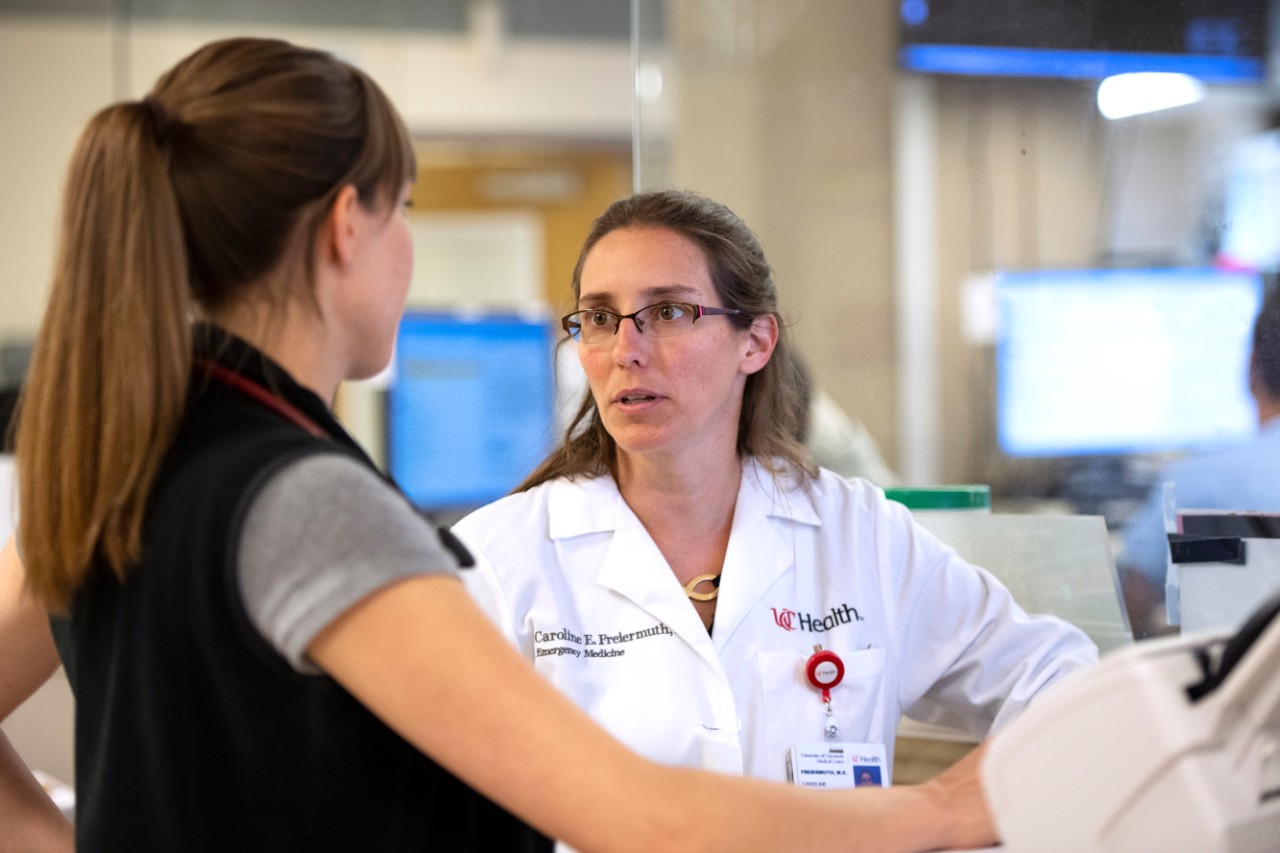
UC researcher part of webinar on sickle cell disease
Webinar is part of the commemoration of National Sickle Cell Awareness Month by the National Heart, Lung and Blood Institute
Caroline Freiermuth, associate professor at the UC College of Medicine, will be one of three experts presenting Wednesday, Sept. 25, during a webinar sponsored by the National Heart, Lung, and Blood Institute. The webinar, entitled “Sickle Cell Disease Care in the Emergency Department: Improvement Initiatives and Ongoing Research,” is to commemorate National Sickle Cell Awareness month in September.
Sickle cell disease (SCD) is a multisystem, progressive disorder that affects approximately 100,000 Americans, primarily of African and Hispanic descent. While considered a rare disease by the National Institutes of Health, SCD is the most common genetic blood disorder in the United States and continues to be associated with a significantly shortened lifespan: 42 years and 48 years for females and males, respectively for those with the most severe form.
Patients with SCD often require care in emergency departments for a variety of potentially life-threatening conditions, but most commonly seek treatment for pain due to vaso-occlusive episodes, which occur when the circulation is obstructed by sickled red blood cells, causing injury and pain to organs that are not receiving blood. This webinar session will highlight current evidence-based best practices and ongoing research designed to improve the care of patients with SCD in emergency rooms.
Freiermuth’s presentation will focus on research surrounding pain management. The panel will be discussing results of recent trials as well as some ongoing initiatives to improve emergency department care in general, but primarily around pain management.
“When a vaso-occlusive episode gets bad enough, it causes pain all over your body because then you start to experience infarcting of the bone marrow in your bones and people have this unbearable pain. A lot of them come to the emergency department because there’s no other way to treat their pain,” says Freiermuth. “When someone presents to the emergency department with pain related to a vaso-occlusive episode, the only current treatment is with opioids. The hospital admission rate for this patient population is more than twice the general population. We need to figure out ways to improve pain management and treat the underlying disease for SCD patients.”
Click here to register for the webinar.
Related Stories
Before the medals: The science behind training for freezing mountain air
February 19, 2026
From freezing temperatures to thin mountain air, University of Cincinnati exercise physiologist Christopher Kotarsky, PhD, explained how cold and altitude impact Olympic performance in a recent WLWT-TV/Ch. 5 news report.
Blood Cancer Healing Center realizes vision of comprehensive care
February 19, 2026
With the opening of research laboratories and the UC Osher Wellness Suite and Learning Kitchen, the University of Cincinnati Cancer Center’s Blood Cancer Healing Center has brought its full mission to life as a comprehensive blood cancer hub.
Nursing innovation emerges as critical lever in healthcare transformation
February 18, 2026
Recognizing both the urgency and the opportunity, the University of Cincinnati (UC) College of Nursing is taking deliberate steps to position nurses at the forefront of healthcare transformation. It has created an Innovation Strategic Plan and established a dedicated Industry Advisory Board to forge the academic-industry partnerships essential to accelerating nurse-driven innovation.
